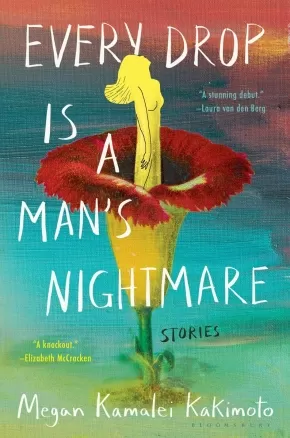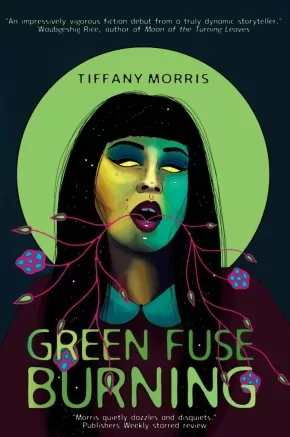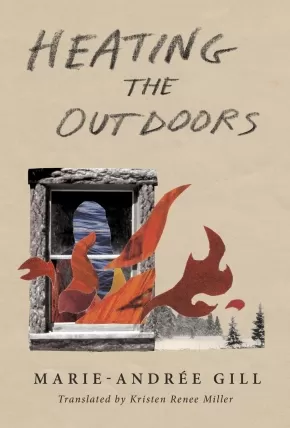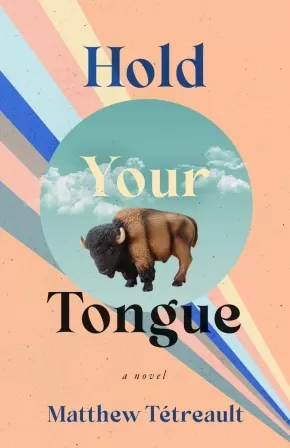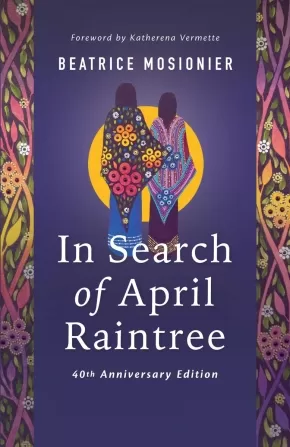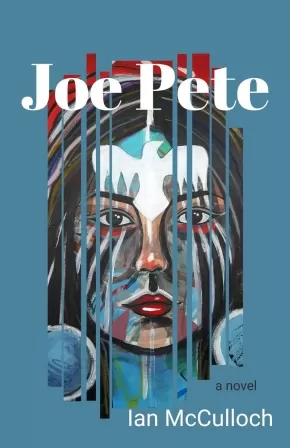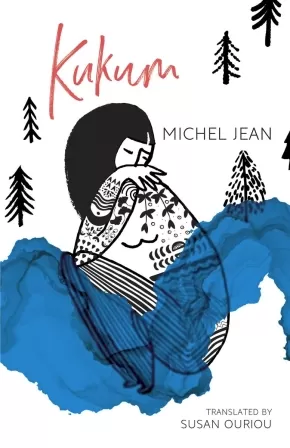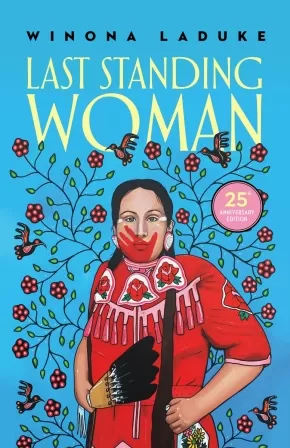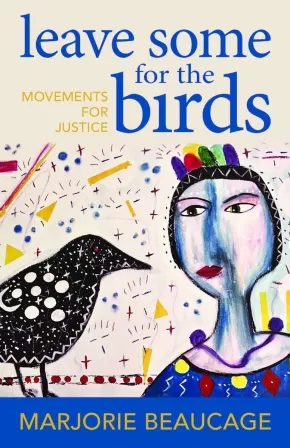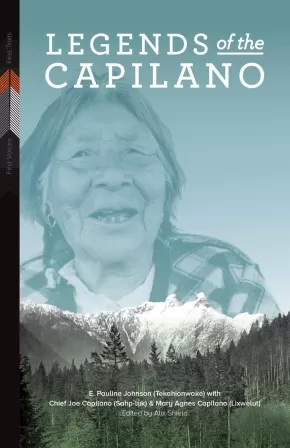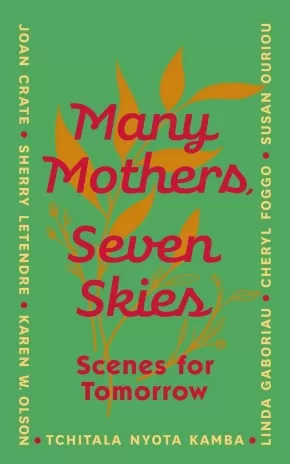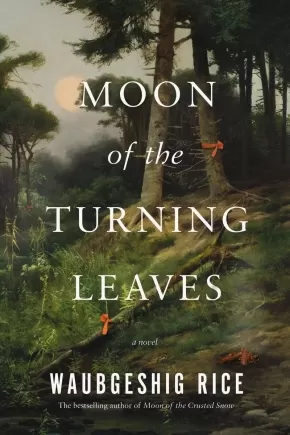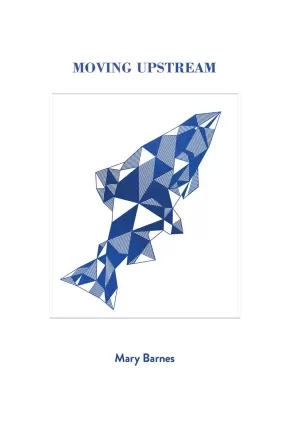
Fiction
151
-
165
of
567 Results;
Sort By
Go To
of 38
Every Drop a Man’s Nightmare
$36.99
Format:
Hardcover
Text Content Territories:
Indigenous Hawaiian;
ISBN / Barcode: 9781639731169
Synopsis:
Synopsis:
From major new storytelling talent Megan Kamalei Kakimoto, a blazing, bodily, raucous journey through contemporary Hawaiian identity and womanhood.
Megan Kamalei Kakimoto's wrenching and sensational debut story collection follows a cast of mixed native Hawaiian and Japanese women through a contemporary landscape thick with inherited wisdom and the ghosts of colonization. This is a Hawai'i where unruly sexuality and generational memory overflow the postcard image of paradise and the boundaries of the real, where the superstitions born of the islands take on the weight of truth.
A childhood encounter with a wild pua'a (pig) on the haunted Pali highway portends one young woman's fraught relationship with her pregnant body. An elderly widow begins seeing her deceased lover in a giant flower. A kanaka writer, mid-manuscript, feels her raw pages quaking and knocking in the briefcase.
Every Drop Is a Man's Nightmare is both a fierce love letter to Hawaiian identity and mythology, and a searing dispatch from an occupied territory threatening to erupt with violent secrets.
Megan Kamalei Kakimoto's wrenching and sensational debut story collection follows a cast of mixed native Hawaiian and Japanese women through a contemporary landscape thick with inherited wisdom and the ghosts of colonization. This is a Hawai'i where unruly sexuality and generational memory overflow the postcard image of paradise and the boundaries of the real, where the superstitions born of the islands take on the weight of truth.
A childhood encounter with a wild pua'a (pig) on the haunted Pali highway portends one young woman's fraught relationship with her pregnant body. An elderly widow begins seeing her deceased lover in a giant flower. A kanaka writer, mid-manuscript, feels her raw pages quaking and knocking in the briefcase.
Every Drop Is a Man's Nightmare is both a fierce love letter to Hawaiian identity and mythology, and a searing dispatch from an occupied territory threatening to erupt with violent secrets.
Reviews
"The contemporary Hawaii of Kakimoto’s debut is neither idyllic backdrop nor tragic fable; the stories evoke the land and its intermixing cultures in all their anxiety, claustrophobia and restlessness . . . Weaving Hawaiian words into English ones, Kakimoto positions language as a tether to our most ancient and eternal selves . . . Every Drop Is a Man’s Nightmare is rich and wise, humming with confidence in the knowledge of a particular community’s lovely, miserable ways." - The New York Times Book Review
"The contemporary Hawaii of Kakimoto’s debut is neither idyllic backdrop nor tragic fable; the stories evoke the land and its intermixing cultures in all their anxiety, claustrophobia and restlessness . . . Weaving Hawaiian words into English ones, Kakimoto positions language as a tether to our most ancient and eternal selves . . . Every Drop Is a Man’s Nightmare is rich and wise, humming with confidence in the knowledge of a particular community’s lovely, miserable ways." - The New York Times Book Review
"It would be fitting but too simple to call this collection haunting. The stories in Megan Kamalei Kakimoto’s Every Drop Is a Man’s Nightmare are so lavishly imagined, and their characters—from young women to mythical beings to watchful ancestors and even Hawaii itself—are so defiant, that to offer any solid definitions seems like a betrayal of the book’s ethics. Here, boundaries between the past and present, the living and the dead, are not so much flimsy as nonexistent . . . Even after one closes the book, the power of these stories remains." —Washington Independent Review of Books
“Megan Kamalei Kakimoto is a short story writer that all other short story writers should study. She has the ability to captivate readers with a single sentence. Her prose bursts with exquisite confidence that makes it hard to believe this is a debut collection. Every Drop is a frontrunner for Book of the Year.” —Debutiful
“Kakimoto interweaves themes of sexual desire and fertility with Hawaiian mythology in her unflinching debut collection . . . Marked by a wry sense of humor and an unerring touch for the surreal, Kakimoto's stories add up to a powerful exploration of gender, class, race, colonialism, and domestic violence. This eloquent outing marks Kakimoto as a writer to watch.” —Publishers Weekly, starred review
Additional Information
| 272 pages | 5.51" x 8.25" |
Fevered Star (PB)
$26.99
Format:
Paperback
Text Content Territories:
Indigenous;
ISBN / Barcode: 9781534437746
Synopsis:
Synopsis:
Return to The Meridian with New York Times bestselling author Rebecca Roanhorse’s sequel to the most critically hailed epic fantasy of 2020 Black Sun—finalist for the Hugo, Nebula, Lambda, and Locus awards.
There are no tides more treacherous than those of the heart. —Teek saying
The great city of Tova is shattered. The sun is held within the smothering grip of the Crow God’s eclipse, but a comet that marks the death of a ruler and heralds the rise of a new order is imminent.
The Meridian: a land where magic has been codified and the worship of gods suppressed. How do you live when legends come to life, and the faith you had is rewarded?
As sea captain Xiala is swept up in the chaos and currents of change, she finds an unexpected ally in the former Priest of Knives. For the Clan Matriarchs of Tova, tense alliances form as far-flung enemies gather and the war in the heavens is reflected upon the earth.
And for Serapio and Naranpa, both now living avatars, the struggle for free will and personhood in the face of destiny rages. How will Serapio stay human when he is steeped in prophecy and surrounded by those who desire only his power? Is there a future for Naranpa in a transformed Tova without her total destruction?
Welcome back to the fantasy series of the decade in Fevered Star—book two of Between Earth and Sky.
Reviews
“Rebecca Roanhorse… [is one] of the Indigenous novelists reshaping North American science fiction, horror and fantasy — genres in which Native writers have long been overlooked.”— The New York Times
Educator & Series Information
This is the second book in the Between Earth and Sky Series.
Additional Information
416 pages | 6.00" x 9.00" | Paperback
Green Fuse Burning
$19.99
Format:
Paperback
Text Content Territories:
Indigenous Canadian; First Nations; Mi'kmaq;
Reading Level: N/A
ISBN / Barcode: 9781778092664
Synopsis:
Synopsis:
After the death of her estranged father, artist Rita struggles with grief and regret. There was so much she wanted to ask him – about his childhood, their family, and the Mi'kmaq language and culture from which Rita feels disconnected. But when Rita's girlfriend Molly forges an artist's residency application on her behalf, winning Rita a week to paint at an isolated cabin, Rita is both furious and intrigued. The residency is located where her father grew up.
On the first night at the cabin, Rita wakes to strange sounds. Was that a body being dragged through the woods? When she questions the locals about the cabin's history, they are suspicious and unhelpful. Ignoring her unease, Rita gives in to dark visions that emanate from the forest's lake and the surrounding swamp. She feels its pull, channelling that energy into art like she's never painted before. But the uncanny visions become more insistent, more intrusive, and Rita discovers that in the swamp's decay the end of one life is sometimes the beginning of another.
Reviews
"Green Fuse Burning is an impressively vigorous fiction debut from a truly dynamic storyteller. Tiffany Morris has laid out a concise and creepy tale that mesmerizes as it weaves through several realms, from the tangible to the spiritual. I was captivated by the looming mystery and the striking imagery that carried me like a current to the story's monumental resolution. This book is a must-read in new speculative fiction!" - Waubgeshig Rice, author of Moon of the Turning Leaves
"Morris quietly dazzles and disquiets in this weird horror novella . . . Poetic and grotesque imagery drives the novella's horror, with fluid narration fostering a sense of disconnect and dread . . . This is a subtle and refreshing twist on the cabin in the woods trope." - Publishers Weekly starred review
"A verdant alienation seeps through every page as Morris reimagines the possibilities of decay, a desperate isolation scouring the mind to reveal a torrid, seething strangeness beneath, the inevitable reckoning gathering its strength below the calm surface of the pond." - Andrew F. Sullivan, author of The Marigold and The Handyman Method
Additional Information
112 pages | 6.12" x 9.03" | Paperback
Heating the Outdoors
$20.00
Format:
Paperback
Text Content Territories:
Indigenous Canadian; First Nations; Innu (Montagnais-Naskapi); Mashteuiatsh (Pekuakamiulnuatsh);
Reading Level: N/A
ISBN / Barcode: 9781771668149
Synopsis:
Synopsis:
You're the clump of blackened spruce
that lights my gasoline-soaked heart
It's just impossible you won't be back
to quench yourself in my crème-soda
ancestral spirit
Irreverent and transcendent, lyrical and slang, Heating the Outdoors is an endlessly surprising new work from award-winning poet Marie-Andrée Gill.
In these micropoems, writing and love are acts of decolonial resilience. Rooted in Nitassinan, the territory and ancestral home of the Ilnu Nation, they echo the Ilnu oral tradition in Gill's interrogation and reclamation of the language, land, and interpersonal intimacies distorted by imperialism. They navigate her interior landscape—of heartbreak, humor, and, ultimately, unrelenting light—amidst the boreal geography.
Heating the Outdoors describes the yearnings for love, the domestic monotony of post-breakup malaise, and the awkward meeting of exes. As the lines between interior and exterior begin to blur, Gill's poems, here translated by Kristen Renee Miller, become a record of the daily rituals and ancient landscapes that inform her identity not only as a lover, then ex, but also as an Ilnu and Québécoise woman.
Awards
- 2020 Indigenous Voices Award for Best Published Poetry in French winner. This book is the translated version in English.
Reviews
"I'm literally captivated by the accuracy, the beauty. They taste of honey, these poems." —Karine Villeneuve, bookseller, Page par Page
"Heating the Outdoors is a stunning collection exploring heartbreak, and the awkward dance between exes from the positionality of an Ilnu and Québécoise woman whose poetic 'gasoline-soaked heart' yearns deeply for love. Translated by Kristen Renee Miller from French into English, Gill's Heating the Outdoors re-wilds the ritualistic humdrum of domestic life while honouring the land and her 'crème-soda ancestral spirit.'" —Shannon Webb-Campbell, author of Lunar Tides and I Am a Body of Land
"These poems live in a bachelor apartment over the corner store. They're on the bus looking out at the muddy hangtime between winter and spring, in a too-warm jacket. These poems will make you a cup of tar-coffee and tell you about the ache of desire in the language of crunching snow. You'll come back to them over and over again to listen." —Carleigh Baker, author of Bad Endings
“Marie-Andrée Gill’s spare, luminous micropoems are endlessly surprising, twisting out, into, and unto themselves like complicated lovers. Defiantly fragmentary, these are stunning shards of tongues, embodied vernaculars slowly, steadily unsettling grammars. Kristen Renee Miller’s translations retain the elegance and shimmer of the originals while wondrously conveying their knottedness, their syntax of skin. When at last we reach Nitassinan, we are reminded of the worlds poetry documents, but also of the worlds it creates. This is poetry that claims the power to 'gnaw the meat off each day and spit out the pin bones' through a language as unresolved as our decolonial dreams and as necessary as our sovereign desires.” —Urayoán Noel, author of Transversal
Additional Information
98 pages | 5.25" x 7.75" | Paperback
Hold Your Tongue: A Novel
$22.95
Format:
Paperback
Text Content Territories:
Indigenous Canadian; Métis;
Reading Level: N/A
ISBN / Barcode: 9781774390719
Synopsis:
Synopsis:
Upon learning his great-uncle Alfred has suffered a stroke, Richard sets out for Ste. Anne, in southeastern Manitoba, to find his father and tell him the news. Waylaid by memories of his stalled romance, tales of run-ins with local Mennonites, his job working a honey wagon, and struck by visions of Métis history and secrets of his family's past, Richard confronts his desires to leave town, even as he learns to embrace his heritage.
Evoking an oral storytelling epic that weaves together one family's complex history, Hold Your Tongue asks what it means to be Métis and francophone. Recalling the work of Katherena Vermette and Joshua Whitehead, Matthew Tétreault's debut novel shines with a poignant, but playful character-driven meditation on the struggles of holding onto "la langue," and marks the emergence of an important new voice.
Reviews
"Inspired by deep knowledge of his French-Métis homeland, Matthew Tétreault has given us a rich, beautifully written novel. In this story you'll meet unforgettable characters who "sprang from the soil." This intricate yarn is an evocative detective story, a search for the first betrayals and deviations, a glorious patchwork of vision and memory, buoyed by love as tough and vulnerable as the land that nurtured it. The past is palpable, vibrant in these pages, full of promise, like 'seedlings.'"--Margaret Sweatman, author of The Gunsmith's Daughter
"The wonderful thing about Hold Your Tongue is that it definitely does not hold its tongue. English, French, and Michif gallop across its pages, mingling and colliding like the fractious history of the Canadian West echoing into the present. What James Joyce did for the voices of the Irish Matthew Tétreault has done for those of his own people. This earthy, wise, big-hearted novel about a Métis community's tangled past and uncertain future shouts, gossips, mourns, jokes, confesses, and sings. Before you reach the end you'll be singing along with it."--Thomas Wharton, award-winning author of Icefields and The Book of Rain
"Witty, down-to-earth, and yet transformative, Matt Tétreault's Hold Your Tongue sets a new benchmark for literature in Canada, folding in francophone and Métis voice and culture and navigating the tensions of family, history, self, and place. Marked both by verisimilitude and contemplation, Hold Your Tongue is a journey through the geography of identity that emerges speaking with a fresh, assured voice."--Conrad Scott, author of Water Immersion
"With cutting language, Matthew Tétreault weaves a narrative that runs us through history and love of land while simultaneously questioning a modern prairie existence. His distinctive voice brings a reader along with the narrator as he navigates the passing of his great-uncle Alfred and, with that, the loss of generations worth of knowledge. At the same time, the narrator questions a future and what it really means to lose the land you love, the question of leaving, and what coming back home really looks like. From brawls with the neighbouring small towns to being buried in your favourite camo ball cap to figuring out a future that may never really exist, this is a read that will keep you sucked into the pages like a hose pumping out the honey bucket."--Conor Kerr, author of Avenue of Champions
Additional Information
272 pages | 5.50" x 8.50" | Paperback
In Search of April Raintree: 40th Anniversary Edition
$22.95
Format:
Paperback
Text Content Territories:
Indigenous Canadian; Métis;
Reading Level: N/A
ISBN / Barcode: 9781774920916
Synopsis:
Synopsis:
Memories. Some memories are elusive, fleeting, like a butterfly that touches down and is free until it is caught. Others are haunting. You'd rather forget them, but they won't be forgotten. And some are always there. No matter where you are, they are there, too.
In this moving story of legacy and reclamation, two young sisters are taken from their home and family. Powerless in a broken system, April and Cheryl are separated and placed in different foster homes. Despite the distance, they remain close, even as their decisions threaten to divide them emotionally, culturally, and geographically. As one sister embraces her Métis identity, the other tries to leave it behind.
Will the sisters’ bond survive as they struggle to make their way in a society that is often indifferent, hostile, and violent?
Beloved for more than 40 years, In Search of April Raintree is a timeless story that lingers long after the final page. This anniversary edition features a foreword by Governor General’s Award–winning author Katherena Vermette, and an afterword by University of Regina professor, Dr. Raven Sinclair (Ôtiskewâpit), an expert on Indigenous child welfare.
Educator Information
This 40th anniversary edition features a foreword by Governor General’s Award–winning author Katherena Vermette, and an afterword by University of Regina professor, Dr. Raven Sinclair (Ôtiskewâpit), an expert on Indigenous child welfare.
A critical edition of this work, which includes ten critical essays accompanying the text, is available here: In Search of April Raintree: Critical Edition
A version written specifically for students in grades 9-12 that does not contain the graphic scene that is contained in this original version is available here: April Raintree
Find a teacher guide for In Search of April Raintree and April Raintree here: Teacher Guide for In Search of April Raintree and April Raintree: A Trauma-Informed Approach to Teaching Stories of Indigenous Survivance, Family Separation, and the Child Welfare System
Additional Information
343 pages | 5.50" x 8.50" | Paperback | Critical Edition
JAJ: A Haida Manga
$34.95
Artists:
Format:
Hardcover
Text Content Territories:
Indigenous Canadian; First Nations; Haida;
Reading Level: N/A
ISBN / Barcode: 9781771623537
Synopsis:
Synopsis:
With gorgeous imagery, visual artist Michael Nicoll Yahgulanaas brings to life the tumultuous history of first contact between Europeans and Indigenous peoples and the early colonization by the Europeans of the northern West Coast.
Yahgulanaas uses a blend of traditional and modern art, eschewing the traditional boxes of comic books for the flowing shapes of North Pacific iconography. The panels are filled with colourful and expressive watercolour paintings. The panels of each page, if removed and assembled into one whole image, form a large image reminiscent of a woven robe.
The story follows several historical figures, including Johan Adrian Jacobsen (JAJ), who comes to the Haida village of Masset to collect specimens for a German museum, through a time span that includes first contact, the devastation of the smallpox epidemic, and the mass resettlement of disenfranchised peoples, both Indigenous and European.
Reviews
“This book is a necessary tale told by the perfect voice at the right time. It also uses graphic imagery in a way I've not seen before, and it feels ground-breaking.” — Douglas Coupland
Additional Information
132 pages | 8.00" x 10.00" | Hardcover
Joe Pete
$23.95
Format:
Paperback
Text Content Territories:
Indigenous Canadian; First Nations; Cree (Nehiyawak); Moose Cree; Missanabie Cree First Nation;
Reading Level: N/A
ISBN / Barcode: 9781988989723
Synopsis:
Synopsis:
A multi-generational story of loss, war, community, survival, perseverance, and renewal.
Joe Pete and her cousin Simon will find more than they anticipated buried beneath the snow as they search for her missing father. Their journey will unlock the ancestors and spirits embedded in the present who call back to a past marked by war and kinship, by conflict and wisdom that continue to contour their trajectory towards the future.
Additional Information
300 pages | 5.50" x 8.50" | Paperback
Kukum
$22.99
Format:
Paperback
Text Content Territories:
Indigenous Canadian; First Nations; Innu (Montagnais-Naskapi); Mashteuiatsh (Pekuakamiulnuatsh);
Reading Level: N/A
ISBN / Barcode: 9781487010904
Synopsis:
Synopsis:
A Quebec bestseller based on the life of Michel Jean's great-grandmother that delivers an empathetic portrait of drastic change in an Innu community.
Kukum recounts the story of Almanda Siméon, an orphan raised by her aunt and uncle, who falls in love with a young Innu man despite their cultural differences and goes on to share her life with the Pekuakami Innu community. They accept her as one of their own: Almanda learns their language, how to live a nomadic existence, and begins to break down the barriers imposed on Indigenous women. Unfolding over the course of a century, the novel details the end of traditional ways of life for the Innu, as Almanda and her family face the loss of their land and confinement to reserves, and the enduring violence of residential schools.
Kukum intimately expresses the importance of Innu ancestral values and the need for freedom nomadic peoples feel to this day.
Educator Information
Translated by Susan Ouriou.
Additional Information
224 pages | 5.50" x 8.50" | Paperback
Last Standing Woman
$23.95
Format:
Paperback
Text Content Territories:
Indigenous American; Native American; Anishinaabeg; Ojibwe (Chippewa); Minnesota Chippewa Tribe; White Earth Band of Ojibwe;
Reading Level: N/A
ISBN / Barcode: 9781774920527
Synopsis:
Synopsis:
Hopeful, irreverent, and deeply moving, Winona LaDuke’s Last Standing Woman chronicles the stories and struggles of an Anishinaabe community across seven generations.
Born at the turn of the 21st century, The Storyteller, also known as Ishkwegaabawiikwe (Last Standing Woman), carries her people’s past within her memories. The White Earth Anishinaabe people have lived on the same land since time immemorial. Among the towering white pines and rolling hills, each generation is born, lives out their lives, and is buried.
The arrival of European missionaries changes the community forever. Piece by piece, government policies rob the people of their land. Missionaries and Indian agents work to outlaw ceremonies the Anishinaabeg have practised for centuries. Grave-robbing anthropologists dig up ancestors and whisk them away to museums as artifacts. Logging operations destroy traditional sources of food, pushing the White Earth people to the brink of starvation.
Battling addiction, violence, and corruption, each member of White Earth must find their own path of resistance as they struggle to reclaim stewardship of their land, bring their ancestors home, and stay connected to their culture and to each other.
In this highly anticipated 25th anniversary edition of her debut novel, Winona LaDuke weaves a nonlinear narrative of struggle and triumph, resistance and resilience, spanning seven generations from the 1800s to the early 2000s.
Reviews
"Humor and compassion are ever present, and at its best, Last Standing Woman is a dignified and powerful retelling of one reservation's struggle for survival."— Booklist, quote from review of previous edition
"Rooted in LaDuke's own Anishinaabe heritage, the novel skillfully intertwines social history, oral myth and character study in ways reminiscent of Leslie Marmon Silko and Louise Erdrich." — Publishers Weekly, quote from review of previous edition
"LaDuke's characters are as vital and fully realized as any in a Louise Erdrich novel...Recommended for both public and academic libraries." — Library Journal, quote from review of previous edition
"The Anishinaabe culture leaps off the page and you can practically smell the fry bread cooking on the stove and hear the drums beating in the distance."— Book Snob, quote from review of previous edition
Additional Information
360 pages | 5.50" x 8.50" | Paperback | 25th Anniversary Edition
leave some for the birds: movements for justice
$20.00
Format:
Paperback
Text Content Territories:
Indigenous Canadian; Métis;
Reading Level: N/A
ISBN / Barcode: 9781928120360
Synopsis:
Synopsis:
From acclaimed filmmaker, artist and activist Marjorie Beaucage comes a poetic memoir that reflects on seven decades of living and seeking justice as a Two Spirit Michif woman. Poems, poetic observations and thoughtful meanderings comprise this inspirational journal-memoir-poetry collection from a woman who has dedicated her life and her talent to creating social change. Unfolding the wisdom gained from experience, leave some for the birds: movements for justice offers guidance for younger activists following the author's trailblazing footsteps.
Reviews
"I have long admired Margie's tenacious ability to persevere in spite of the obstacles placed in front of her. She continues to challenge the status quo and hangs onto what is right and just. She awakens, supports and lifts the many voices who struggle to be heard. Her voice dives deep into the depth of unknown and bewildering waters. Yet, she bubbles to the surface, takes a breath and howls with a universal plea to pay attention to the injuries imposed on the land and its people. I am honored to walk with her."--Louise B. Halfe - Sky Dancer, author of The Crooked Good.
Additional Information
211 pages | 6.00" x 9.00" | 7 Illustrations | Paperback
Legends of the Capilano
$24.95
Editors:
Format:
Paperback
Text Content Territories:
Indigenous Canadian; First Nations; Haudenosaunee (Iroquois); Kanyen'keha:ka (Mohawk); Salish; Coast Salish; Squamish;
Grade Levels: 12; University/College;
ISBN / Barcode: 9781772840179
Synopsis:
Synopsis:
Bringing the Legends home
Legends of the Capilano updates E. Pauline Johnson’s 1911 classic Legends of Vancouver, restoring Johnson’s intended title for the first time. This new edition celebrates the storytelling abilities of Johnson’s Skwxwú7mesh (Squamish) collaborators, Joe and Mary Capilano, and supplements the original fifteen legends with five additional stories narrated solely or in part by Mary Capilano, highlighting her previously overlooked contributions to the book.
Alongside photographs and biographical entries for E. Pauline Johnson, Joe Capilano, and Mary Capilano, editor Alix Shield provides a detailed publishing history of Legends since its first appearance in 1911. Interviews with literary scholar Rick Monture (Mohawk) and archaeologist Rudy Reimer (Skwxwú7mesh) further considers the legacy of Legends in both scholars’ home communities. Compiled in consultation with the Mathias family, the direct descendants of Joe and Mary Capilano and members of the Skwxwú7mesh Nation, this edition reframes, reconnects, and reclaims the stewardship of these stories.
Reviews
"Shield has skilfully opened up a new avenue to the past with potentially wide-ranging appeal both to scholars and students and to general readers."— Jean Barman
Educator Information
This book is part of the First Voices, First Texts series.
Additional Information
256 pages | 5.50" x 8.50" | Paperback
Many Mothers, Seven Skies: Scenes for Tomorrow
$16.95
Format:
Paperback
Text Content Territories:
Indigenous Canadian;
Reading Level: N/A
ISBN / Barcode: 9781990601521
Synopsis:
Synopsis:
A diverse group of seven writers comes together to create seven tender scenes about their hopes for the future.
The Many Mothers Collective came together during the pandemic, hoping to make sense of the world they found themselves in. What evolved was their need to not only focus on the present moment, but on the world they will leave behind for their children and grandchildren, and for seven generations to come. In seven scenes for the stage, the members of the collective explore the past, where they come from, and the future, where they are going, with a deep sense of hopefulness rooted in resistance.
Additional Information
70 pages | 5.00" x 8.00" | Paperback
Moon of the Turning Leaves
$24.95
Format:
Paperback
Text Content Territories:
Indigenous Canadian; First Nations; Anishinaabeg;
Grade Levels: 12; University/College;
ISBN / Barcode: 9780735281585
Synopsis:
Synopsis:
Twelve years after the lights go out . . .
An epic journey to a forgotten homeland
The hotly anticipated sequel to the bestselling novel Moon of the Crusted Snow
It's been over a decade since a mysterious cataclysm caused a permanent blackout that toppled infrastructure and thrust the world into anarchy. Evan Whitesky led his community in remote northern Ontario off the rez and into the bush, where they've been living off the land, rekindling their Anishinaabe traditions in total isolation from the outside world. As new generations are born, and others come of age in the world after everything, Evan’s people are in some ways stronger than ever. But resources in and around their new settlement are beginning to dry up, and the elders warn that they cannot afford to stay indefinitely.
Evan and his fifteen-year-old daughter, Nangohns, are elected to lead a small scouting party on a months-long trip to their traditional home on the north shore of Lake Huron—to seek new beginnings, and discover what kind of life—and what dangers—still exist in the lands to the south.
Moon of the Turning Leaves is Waubgeshig Rice’s exhilarating return to the world first explored in the phenomenal breakout bestseller Moon of the Crusted Snow: a brooding story of survival, resilience, Indigenous identity, and rebirth.
Reviews
"An epic journey into the future, powerfully haunting." —Silvia Moreno-Garcia, bestselling author of Mexican Gothic
“Tense, atmospheric, and ultimately hopeful, Rice masterfully delivers an unsettling, page-turning sequel." —Eden Robinson, author of Son of a Trickster
“It felt like an eternity waiting for Waubgeshig to write the sequel to Moon of the Crusted Snow and it was worth it. As we as a species ponder our own survival, this talented author walks his courageous characters through an odyssey towards hope. At times heart-racing and at times heart wrenching, Moon of the Turning Leaves allows us all to turn the page and find out what’s next in an uncertain future.” —Catherine Hernandez, award-winning author and screenwriter of Scarborough the novel and film
“[Moon of the Turning Leaves] is by turns beautiful and inspiring and bleak and violent. In other words, the perfect dystopian read. Let's hope Waubgeshig Rice doesn't make us wait too long for the next visit to this captivating world.” —Alma Katsu, author of The Fervor and The Hunger
"Novels, when brilliantly written, are passports to another place, another world. Moon of the Turning Leaves takes us to a First Nations community beset by an unbelievable fate that’s managed to survive when much of the world hasn't. Rice has given us a meaningful journey, and people to cheer for. I was in this story." —Drew Hayden Taylor, author of Motorcycles and Sweetgrass and Cold
“Waubgeshig Rice's stories are good medicine. Moon of the Turning Leaves is a restorative balm for my spirit.” —Angeline Boulley, New York Times bestselling author of Firekeeper's Daughter and Warrior Girl Unearthed
"Rice quite brilliantly weaves this sequel to Moon of the Crusted Snow such that the ongoing journey of those wonderfully drawn characters carries on seamlessly. Moon of the Turning Leaves stands on its own while simultaneously carrying the heart of the original story. Suspenseful and gripping, the great anticipation for this next installment is borne out by this artful storytelling." —Michelle Good, award-winning author of Five Little Indians and Truth Telling
Additional Information
312 pages | 5.50" x 8.25" | Paperback
Moving Upstream
$24.95
Format:
Paperback
Text Content Territories:
Indigenous Canadian; First Nations; Anishinaabeg; Ojibway;
Reading Level: N/A
ISBN / Barcode: 9781988168982
Synopsis:
Synopsis:
Drawing on her Ojibwa roots and storytelling, Barnes shares stories that take the heart on the path to the past, nostalgic though it may be, wherein lies discovery, memories, and rhythms that ease the soul. Touching, tender but never overwrought, Barnes' poetry brings wonder to the spirit of nature and provides a sense of connection to the things most often overlooked.
Additional Information
140 pages | 7.50" x 5.00" | Paperback
Sort By
Go To
of 38

